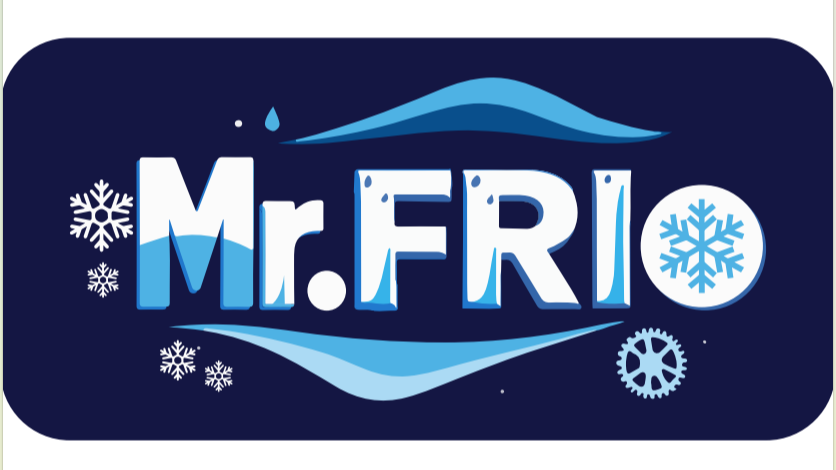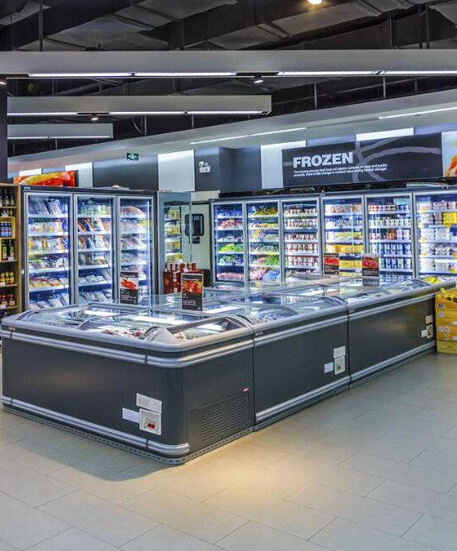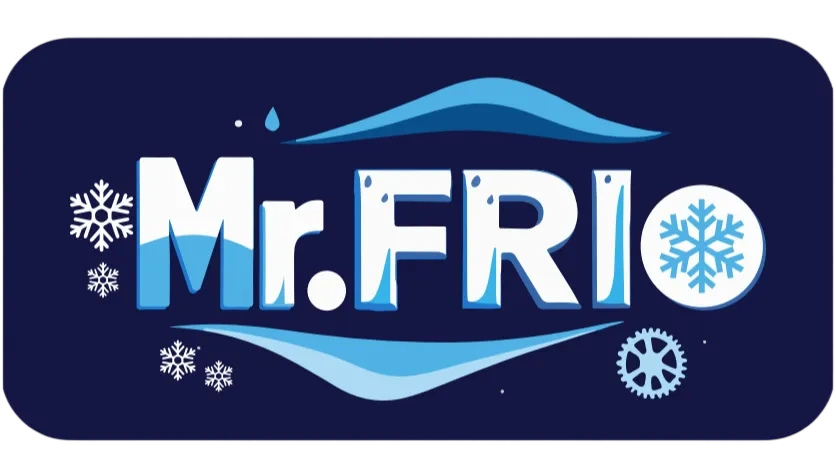Understanding Blast Freezers in Commercial Settings
Commercial operations rely heavily on blast freezers because they cool products fast and efficiently something that keeps food quality intact and safe for consumption. Unlike regular deep freezers found in restaurants or home kitchens, these industrial strength machines use cutting edge tech to bring down food temperatures quickly. This rapid freezing stops big ice crystals from forming inside the product, so the texture stays good and flavors don't get lost. Food processors and pharma companies especially need this kind of quick cooling capability. Many manufacturers turn to top brands for their blast freezer needs since speed matters so much in these sectors. The faster goods can be frozen, the better inventory gets managed and less stuff ends up wasted, which makes business sense all around and cuts down on overall operating costs.
Key Features of Industrial-Grade Blast Freezers
Rapid Cooling Technology for Food Preservation
Fast cooling tech plays a big role in keeping food safe and tasty when running a commercial kitchen or food business. Restaurants need to get things cold quick, which is where blast freezers come in handy. These machines can drop temps down to around minus 40 degrees Fahrenheit pretty much instantly. Why does this matter? Well, when food cools too slowly, big ice crystals form inside, and that messes with how the food feels and tastes after thawing. There are different ways to pull off this quick chill job. Some places use liquid nitrogen setups while others go with newer refrigerant systems. Either way, the goal stays the same: keep those perishables fresh longer so customers get what they paid for without losing nutritional value.
Durable Construction for Heavy-Duty Use
Blast freezers made for industrial use typically feature stainless steel construction and thick layers of insulation to handle the tough conditions found in busy commercial kitchens. How durable these machines are really affects how well they perform over time. A good quality unit will keep running smoothly day after day without breaking down. Many manufacturers test their freezers extensively before shipping them out. These tests simulate what happens when a machine runs non-stop for weeks on end. This kind of stress testing helps ensure that when installed in places like meat processing plants or large catering operations, the equipment won't let operators down during peak hours.
Energy-Efficient Operation in Restaurant Environments
Industrial freezers eat up a lot of electricity, which really adds up over time in commercial kitchens where running costs are already sky high. The newer models come packed with tech upgrades like variable speed compressors and those fancy energy management systems that actually work wonders at cutting down power usage without messing with how well they freeze stuff. Some places have reported saving anywhere from 20% to 40% on their energy bills after switching to these modern units. For restaurants trying to be greener but still need to keep profits healthy, investing in efficient freezers makes sense both environmentally and financially. It's one of those rare wins where doing good for the planet also saves money at the end of the month.
Types of Flash Freezing Solutions
Blast Freezers vs. Deep Freezers: Key Differences
Blast freezers and deep freezers serve important roles when it comes to keeping perishables safe, though they work in completely different ways. Blast freezers can drop temperatures to around -40 degrees Fahrenheit pretty fast, which helps keep food fresh longer by stopping those annoying ice crystals from forming inside the product. These machines rely on some pretty sophisticated tech to maintain exact temperatures while cooling things down quickly. On the other hand, deep freezers just sit there holding everything at a steady cold temperature for months or even years, but they don't have that quick freezing power that blast freezers do. Because they freeze so much faster, most restaurants and caterers prefer blast freezers for their operations since they need to preserve food quality without waiting around. Meanwhile, regular households tend to stick with deep freezers when they want to store bulk amounts of groceries for extended periods without worrying about frequent temperature changes.
Instant Freezer Applications in Food Service
Instant freezers are really important in the food service world because they keep food products fresh and good quality. They work great for things that need to be frozen right after making them, like seafood, different kinds of meat, and those fancy desserts that break easily. When we freeze stuff quickly, these freezers actually hold onto the natural texture, taste, and nutrients that would get lost if we used regular slow freezing methods. Restaurants and caterers love this because it means their dishes stay just as good when they reach customers' tables as they were when first prepared, which makes people happy with what they eat. What happens with fast freezing? Well, it stops big ice crystals from forming inside the food cells. Those big crystals ruin everything, so avoiding them keeps food tasting fresh even after being thawed out later.
Specialized Systems for Pharmaceutical Storage
Pharma companies need special cold storage solutions because many medicines and vaccines just won't survive regular refrigeration. The right freezing system keeps temperatures locked within narrow ranges so nothing happens to the medicine's strength or safety profile. Temperature stability matters a lot here - even small changes over time can make drugs less effective when they reach patients. Good systems come equipped with all sorts of bells and whistles including constant temperature checks and alarms that go off if things start drifting out of range. Meeting regulations from bodies like the FDA and EMA isn't optional but required practice across the board. These rules specify exactly how different meds should be stored under what conditions, which helps keep everything working properly until expiration date arrives.
Benefits of Commercial-Grade Freezing Equipment
Maintaining Food Safety Standards
Keeping food safe remains a top priority across the food sector, and commercial blast freezers are vital tools in achieving this goal. The ability to maintain exact temperatures while freezing products rapidly makes these machines indispensable for stopping bacteria from multiplying on perishable goods. When meat or seafood isn't frozen fast enough, harmful microbes can spread, compromising both taste and health. Standards like HACCP actually work because they push processors to freeze sensitive items within strict time frames that lock in freshness and kill pathogens. Blast freezers also make it possible to satisfy all those pesky FDA rules and FSIS guidelines that demand certain temperature logs be kept throughout processing and shipping. Without proper freezing equipment, food companies would struggle to pass inspections and keep shelves stocked with safe products.
Optimizing Kitchen Workflow Efficiency
Adding blast freezers to commercial kitchens makes a big difference in how things run day to day. These freezers freeze stuff super fast, which means food prep goes much smoother for kitchen staff. Chefs can keep producing at top speed while still keeping the quality standards high. Time savings are obvious, but there's another bonus too the staff doesn't have to watch over traditional freezers all the time anymore. One major restaurant group saw their kitchen operations get about 20% better once they started using this freezing tech. They noticed fewer delays during peak hours and less stress on the team when dealing with temperature control issues that used to plague their old setup.
Reducing Food Waste Through Rapid Freezing
Fast freezing tech plays a major role in cutting down on food waste, especially for large restaurants and catering businesses. These industrial freezers keep perishable items fresh longer, so less gets thrown away, which saves money and helps the planet too. The FAO reports around 30% of all food ends up wasted somewhere along the supply chain, making good freezing methods absolutely essential. When we cut back on food waste, we're actually shrinking the carbon emissions from farming and transportation as well. That's why many smart operators are investing in blast freezers these days. They boost bottom lines while ticking boxes for sustainability programs, helping restaurant owners sleep better knowing they're doing their part for the environment without sacrificing profits.
Selecting Reliable Freezer Suppliers
Importance of ISO Certification and Safety Standards
Businesses operating in the food sector should really focus on finding suppliers with ISO certification. Getting this kind of certification means the supplier follows global safety and quality rules, so their blast freezers can keep food safe and fresh properly. Suppliers who follow standards like ISO14001 for environmental management and ISO9001 for quality control actually make customers feel better about buying from them since the equipment meets all the legal requirements. There are other marks too worth looking at, like CE marking for European markets and CCC certification required in China, both showing compliance with important health and environmental regulations. Beyond just keeping things running smoothly, having these certifications builds trust over time. A supplier with proper paperwork behind them tends to be seen as more reliable when compared to competitors without similar credentials, which matters a lot when food safety is on the line.
Evaluating Manufacturer Experience and Industry Specialization
Finding a supplier with real hands-on experience making blast freezers matters a lot for businesses. Manufacturers who've been around in refrigeration for years tend to know their stuff better. They usually run smoother operations because they've seen all sorts of challenges over time. Plus, these folks typically get what customers need since they specialize in this niche area. When looking at possible suppliers, it's worth checking how long they've been doing this kind of work. Ask to see examples of previous installations and talk to other companies that bought from them before. Getting inside info on their actual track record gives a clearer picture of whether they can handle specific needs without breaking a sweat.
Custom Solutions for Different Commercial Needs
When suppliers can deliver custom solutions, they really hit the mark when it comes to solving particular business problems. Many companies find themselves needing blast freezers configured in ways that fit exactly what they do day to day or the products they handle. Take restaurants for instance. A seafood place probably wants something different than a burger joint. They might actually need an instant freezer where temperatures stay just right so fish doesn't get ruined before it hits the plate. Working with a supplier who understands these kinds of special requests makes all the difference in running operations smoothly. Look at what happened at several businesses that got their freezers customized. These real world stories show how getting equipment built specifically for what they needed helped them run better and keep their products tasting great too.


